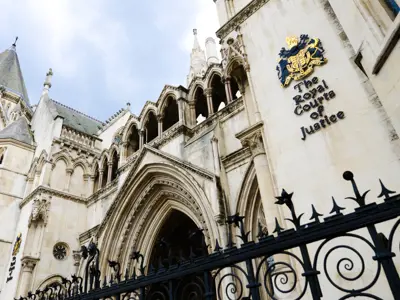Panorama investigation uncovers new evidence concerning alleged extrajudicial killings in Afghanistan
An investigation by the BBC’s Panorama programme is reported to have uncovered fresh evidence, including new eyewitness evidence, relating to allegations of extrajudicial killings of civilians by UK Special Forces in Afghanistan.
Posted on 12 July 2022
Two families who allege their loved ones were killed by UK Special Forces, in two separate night raids in Helmand Province in 2011 and 2012, have welcomed the investigation by Panorama.
The MoD claims that the deaths of the families’ relatives have been thoroughly investigated but the High Court has granted the families permission to challenge that assertion through ongoing judicial review proceedings and the families believe that new evidence unearthed by Panorama reinforces the need for an independent, thorough Article 2 compliant inquiry into these exceptionally serious allegations.
In the long-running Saifullah and Noorzai judicial review proceedings started by the two families in 2019 and 2020 respectively, the families have argued that previous investigations by the Royal Military Police (RMP) failed, among other things, to consider relevant systemic issues including whether the deaths of their relatives formed part of a wider pattern of extrajudicial killings by British forces in Afghanistan, and whether those deaths were covered-up by both senior SAS and SBS officers and officials in Whitehall.
Today’s Panorama reports that the RMP ‘felt they stood little chance of prosecuting anyone for murder’ because of obstruction faced from others within the military and the MoD.
In the first incident, on 16 February 2011, four family members were shot dead at close range after Special Forces had established control of the family’s house and residents.
Court proceedings were issued by the family in October 2019 arguing that the MoD failed to conduct a prompt and effective investigation into the circumstances of the killings of the four civilian family members.
The family also contends that the MoD’s explanation of how each of the four men came to be shot dead is utterly implausible. In respect of two of the four men, the MoD has claimed that after being detained and searched by British soldiers, the men were directed to re-enter the family’s house whereupon they each remarkably managed to pick up a weapon (in one case a grenade hidden behind a curtain, in the other an AK47 hidden under a blanket).
Contemporaneous documents disclosed by the MoD in these proceedings show that multiple British officers expressed disbelief at these accounts and dismay at the actions of the unit concerned, who they suspected of engaging in (and covering up) widespread executions of innocent civilians.
The documents reveal that just hours after the four members of the Saifullah family were shot dead, their deaths were described by one British officer as the “latest massacre!”.
The second case is brought by family members of three young boys (aged 12, 14 and 16 years) and one young man (aged 18 years) allegedly shot dead by UK Special Forces while they were sat drinking tea at home on the evening of 18 October 2012. While in this case, the RMP did commence an investigation which led to the referral of three British soldiers to the Service Prosecution Authority (SPA), including one soldier for suspected murder, ultimately no soldier was ever prosecuted for any offence.
The legal team representing the families believe that the latest revelations to be broadcast by Panorama on 12 July 2022 will provide further evidence to support their clients’ case that extrajudicial killings of civilians in Afghanistan by British Special Forces were widespread and that the MoD has covered up those allegations.
In Australia, strikingly similar allegations of war crimes committed by Australian Special Forces in Afghanistan have already been the subject of a four-year inquiry. The ‘Brereton Report’ published in 2020 found evidence of 39 murders of civilians and prisoners by, or on the instruction of, members of the Australian Special Forces, mostly in 2012-2013, as well as evidence of subsequent cover-up by ADF personnel. Justice Brereton found that if the circumstances of each killing were accepted by a jury, they would constitute the war crime of murder.
Tessa Gregory, partner at law firm Leigh Day, said:
“The fresh eyewitness evidence uncovered by Panorama shines a light on the inadequacies of the investigations conducted to date by the MoD and reinforces the need for an independent, thorough and fearless inquiry into these exceptionally serious allegations and the systemic issues they raise. Our clients have been pushing for years to get a full and fair investigation into the death of their loved ones and we hope that the unearthing of this new evidence will bring them a step closer to that.”



